Explanation of my 10 Ballon d'Or 1980
This is my ranking, my opinion on the Ballon d'Or of the year 1980. This ranking is based on the calendar year, not the season. What counts for this ranking is the player's regularity over the calendar year, the number of matches played, the ability to raise his level in big games, statistics (goals, assists, clean sheets, goals conceded, etc.) and trophies won (collective and individual).
#10 Manfred Kaltz
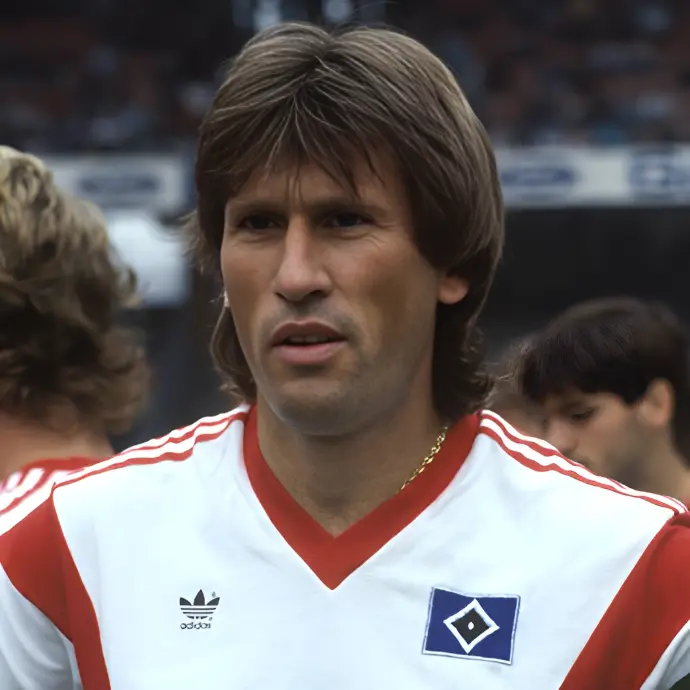
- Age : 27 years old
- Club : Hamburg SV
- Statistics : 56 games, 15 goals, / assists
- Trophies : Euro, Finalist Champions League, Bundesliga Vice-Champion
- Individual Awards : Champions League TOTY, Bundesliga TOTY
In 1980, Manfred Kaltz was the blueprint for the modern full-back—a defender who didn’t just stop attacks, but launched them with precision and flair. That year, he was a cornerstone of both Hamburger SV and the West German national team. At club level, he helped Hamburg reach the European Cup final, where they narrowly lost to Nottingham Forest. His trademark “banana crosses”—curving deliveries from the right flank—were a nightmare for defenders and a dream for strikers like Horst Hrubesch, with whom he formed a devastating partnership. Internationally, Kaltz played a key role in West Germany’s triumph at Euro 1980, starting every match and providing width, balance, and defensive solidity. His overlapping runs and pinpoint service were crucial in a team that blended steel and style. That summer, he lifted the trophy in Rome, cementing his place among Europe’s elite.
#9 Peter Shilton
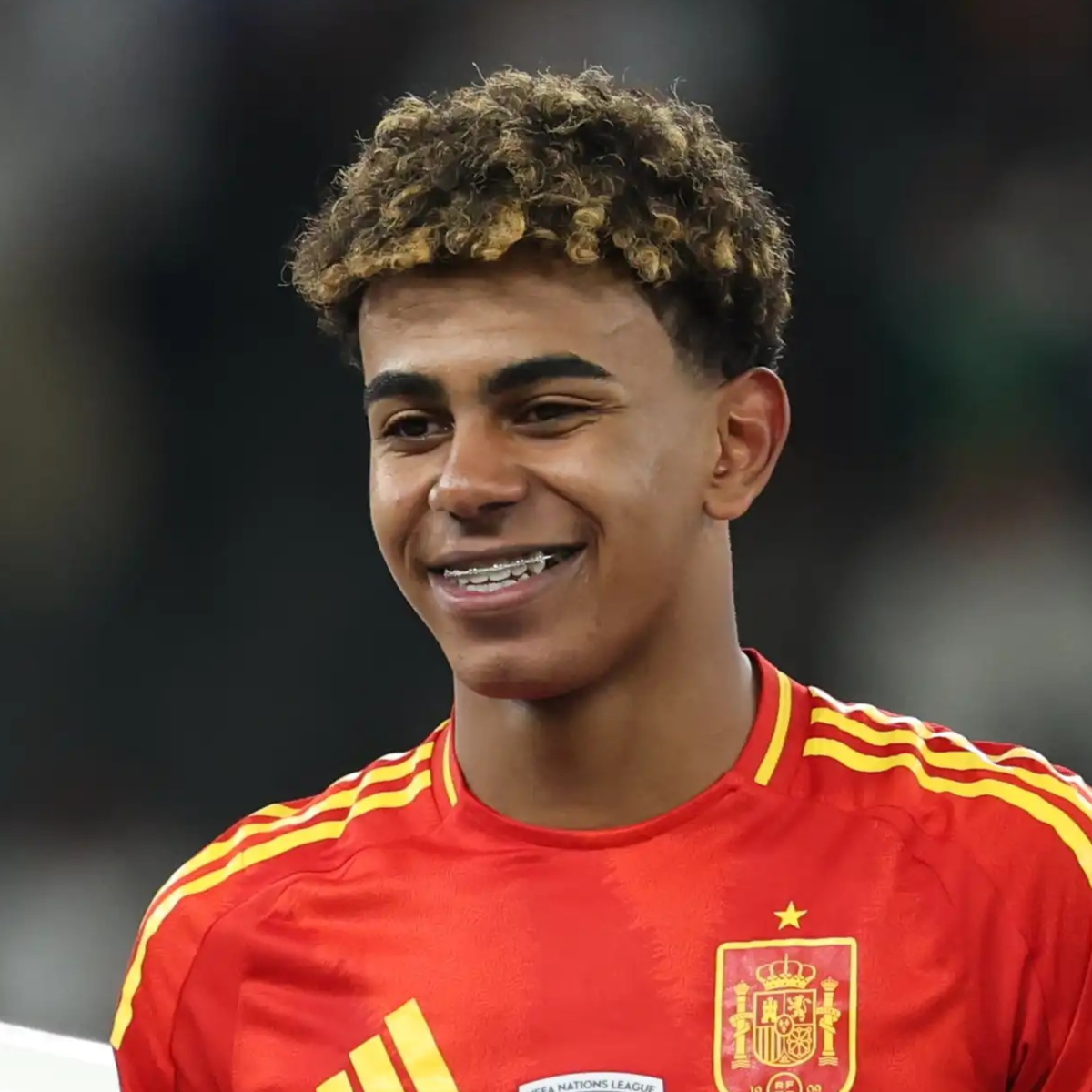
- Age : 30/31 years old
- Club : Nottingham Forest
- Statistics : 64 games, 55 goals conceded, 24 clean sheets
- Trophies : Champions League, UEFA Supercup, Finalist UEFA Supercup ; Finalist English League Cup
- Individual Awards : Champions League TOTY, Premier League TOTY
In 1980, Peter Shilton was the gold standard for goalkeepers, a towering presence for both Nottingham Forest and England. That year, he helped Forest reach their second consecutive European Cup final, where they triumphed over Hamburg to retain the title. Shilton’s composure, shot-stopping, and command of the box were instrumental in that European run—he wasn’t just making saves, he was making statements. His performances in Europe solidified his reputation as one of the finest keepers in the world. On the international stage, he was England’s number one at UEFA Euro 1980, starting all three group matches. Though England didn’t progress, Shilton’s reliability and leadership were never in question. His calm demeanor and sharp reflexes gave the Three Lions a sense of security at the back. By 1980, Shilton had already amassed over a decade of top-flight experience, but he was still evolving—a master of positioning, anticipation, and consistency.
#8 Bernd Schuster
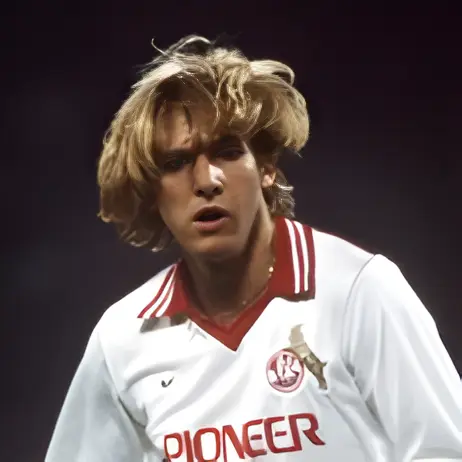
- Age : 20 years old
- Club : FC Köln/FC Barcelona
- Statistics : 41 games, 14 goals, / assists
- Trophies : Euro, Finalist German Cup
- Individual Awards : Euro TOTT
In 1980, Bernd Schuster exploded onto the world stage, announcing himself as one of the most gifted midfielders of his generation. At just 20 years old, he was a revelation for 1. FC Köln, dazzling with his vision, passing range, and fearlessness on the ball. His performances earned him a spot in West Germany’s Euro 1980 squad, where he didn’t just participate—he transformed the team. In the group stage win over the Netherlands, Schuster was involved in all three goals, injecting creativity and tempo into the German midfield. He was named to the Team of the Tournament, and West Germany went on to lift the trophy. That summer, his stock soared. He transferred to FC Barcelona, where he immediately became the heartbeat of the team. His impact was so profound that he finished second in the Ballon d’Or voting, just behind Karl-Heinz Rummenigge. Nicknamed “Der Blonde Engel” (The Blond Angel), Schuster combined elegance with aggression, artistry with authority. In 1980, he wasn’t just a rising star—he was a phenomenon in full flight, reshaping what it meant to be a playmaker. A 20-year-old with the poise of a veteran and the imagination of a genius. A new era had begun.
#7 Sócrates
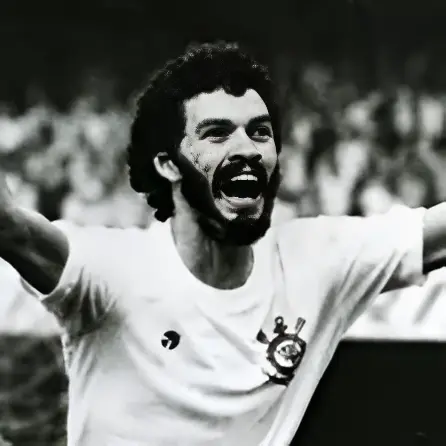
- Age : 25/26 years old
- Club : Corinthians
- Statistics : 53 games, 30 goals, / assists
- Trophies : /
- Individual Awards : Brazilian League TOTY
In 1980, Sócrates was emerging as both a footballing genius and a cultural icon in Brazil. On the pitch, he was the elegant, cerebral leader of Corinthians, dazzling fans with his signature backheel passes, long strides, and effortless control. That year, he scored 13 goals in 16 Série A matches, showcasing his ability to both create and finish with equal flair. His performances helped Corinthians reach the semi-finals of the national championship, and his influence on the team was growing by the week. But 1980 was also the beginning of something bigger. It marked the early stirrings of the Democracia Corinthiana movement—a radical, player-led initiative that Sócrates would soon champion. Though it wouldn’t fully bloom until 1982, the seeds were planted in 1980, as he began to use his platform to challenge Brazil’s military regime and advocate for democratic values within football and beyond. Internationally, Sócrates was becoming a fixture in the Brazilian national team, forming the foundation of what would become one of the most beloved squads in history. His intelligence—both on and off the field—set him apart. In 1980, he wasn’t just a rising star; he was a philosopher in boots, already reshaping the game with his mind as much as his feet. A thinker, a leader, and a symbol of a new kind of football.
#6 Jan Ceulemans
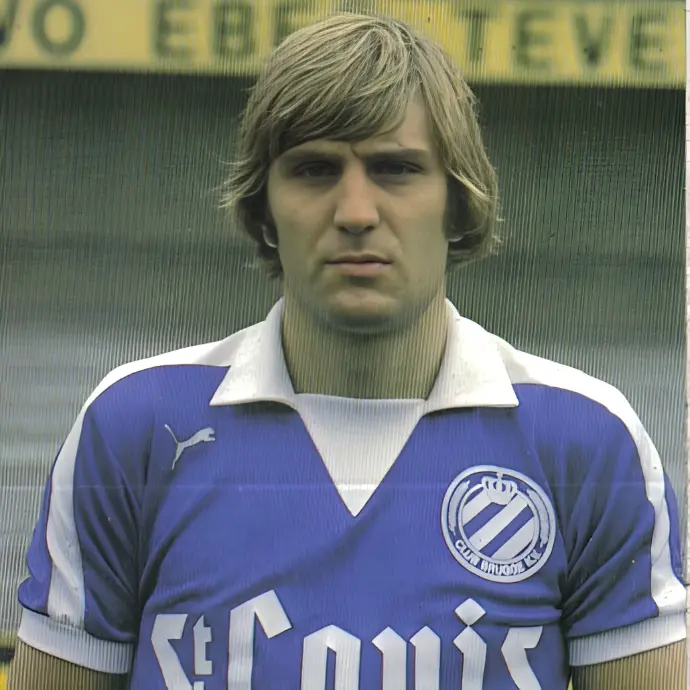
- Age : 22/23 years old
- Club : FC Bruges
- Statistics : 51 games, 32 goals, / assists
- Trophies : Finalist Euro, Belgian League, Belgian Supercup
- Individual Awards : Belgian POTY, Euro TOTT
In 1980, Jan Ceulemans was the embodiment of Belgian football’s rising power—a dynamic, fearless midfielder who combined physicality with finesse. That year, he was a driving force behind Belgium’s historic run to the UEFA Euro 1980 final, their best international performance at the time. Ceulemans played every match, anchoring the midfield with his tireless energy, aerial dominance, and ability to surge forward with purpose. His presence helped Belgium top a group that included Italy, England, and Spain, before narrowly losing 2–1 to West Germany in the final. At club level, he had just made the move from Lierse SK to Club Brugge, a transfer that would define the next decade of his career. Though still settling into his new surroundings, his impact was immediate—bringing leadership, goals, and a relentless work ethic to the Bruges midfield.
#5 Michel Platini
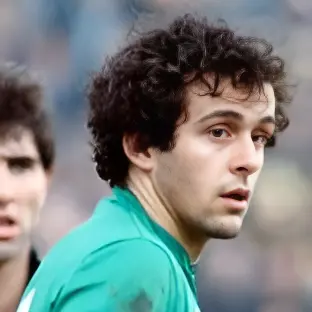
- Age : 24/25 years old
- Club : ASSE
- Statistics : 59 games, 35 goals, / assists
- Trophies : /
- Individual Awards : French League TOTY
In 1980, Michel Platini was the crown jewel of French football, dazzling fans with his artistry and precision at AS Saint-Étienne. Though the club didn’t clinch the league title that year, Platini’s individual brilliance was undeniable—he scored 20 goals in 36 matches, an extraordinary tally for a midfielder, and continued to refine his reputation as one of the most intelligent playmakers in the game. Internationally, he was the heartbeat of France’s national team, guiding them through the qualifiers for the 1982 World Cup. His leadership, vision, and set-piece mastery made him the focal point of a squad that was beginning to believe in its potential.
#4
Horst Hrubesch
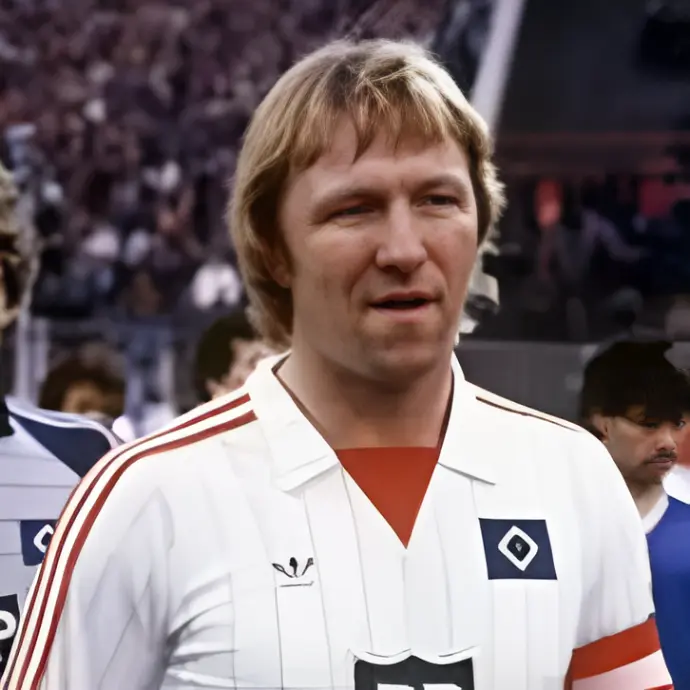
- Age : 28/29 years old
- Club : Hamburg SV
- Statistics : 58 games, 45 goals, 5 assists
- Trophies : Euro, Finalist Champions League, Bundesliga Vice-Champion
- Individual Awards : Euro TOTT
In 1980, Horst Hrubesch became a German hero—a late-blooming striker who delivered when it mattered most. That summer, he was a surprise call-up to the West Germany squad for UEFA Euro 1980, brought in mid-tournament to replace the injured Klaus Fischer. Few expected him to play a major role—but Hrubesch had other plans. In the final against Belgium, he scored both goals in a 2–1 victory, including a dramatic late winner with his head. It was a classic Hrubesch moment: towering, fearless, and decisive. That performance earned him the nickname “Das Kopfball-Ungeheuer”—The Header Beast. At club level, he was the spearhead of Hamburger SV, scoring 21 goals in the 1979–80 Bundesliga season and helping the team reach the European Cup final, where they narrowly lost to Nottingham Forest. His partnership with right-back Manfred Kaltz—whose trademark “banana crosses” curved perfectly onto Hrubesch’s head—was one of the most feared combinations in Europe3.
#3 Zico
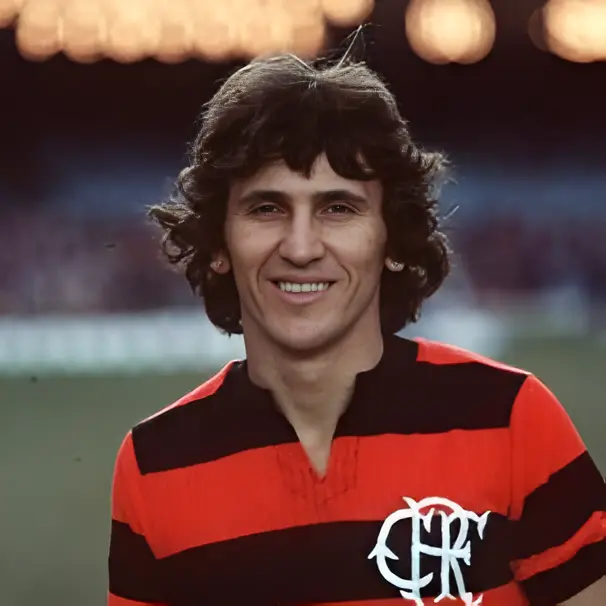
- Age : 26/27 years old
- Club : Flamengo
- Statistics : 46 games, 39 goals, 10 assists
- Trophies : Brazilian League, Guanabara Cup
- Individual Awards : South American TOTY, Brazilian League POTY, Brazilian League TOTY
In 1980, Zico was already a living legend in Brazil, orchestrating games with a blend of artistry and precision that few could match. That year, he led Flamengo to the Campeonato Carioca title, continuing to build the foundation for what would become one of the most dominant eras in the club’s history. His performances were nothing short of mesmerizing—he scored 39 goals in 46 matches, pulling the strings from midfield and dazzling fans with his trademark free kicks, vision, and creativity. Internationally, Zico was the heartbeat of the Brazilian national team, helping them qualify for the 1982 World Cup with style. Though the tournament was still two years away, his influence was already shaping Brazil’s identity as a team of flair and fluidity.
#2 Diego Armando Maradona
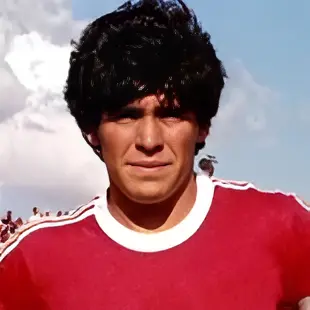
- Age : 19/20 years old
- Club : Argentinos Juniors
- Statistics : 55 games, 50 goals, 15 assists
- Trophies : Argentinian Vice-Champion
- Individual Awards : South American POTY, South American TOTY, Argentinian League POTY, Argentinian League TOTY, Argentinian Golden Shoe (42 goals)
In 1980, Diego Maradona was a phenomenon in full bloom—a 19-year-old prodigy already playing like a seasoned maestro. That year, he was still with Argentinos Juniors, where he delivered one of the most astonishing seasons in Argentine football history: 42 goals in 45 matches. His dribbling was hypnotic, his vision razor-sharp, and his left foot a wand that could conjure magic from anywhere on the pitch. He was named top scorer of the Torneo Metropolitano for the third consecutive year, a feat that underscored his dominance. Internationally, he was already a fixture in the Argentina national team, dazzling in friendlies and qualifiers, though still haunted by his controversial omission from the 1978 World Cup squad. But 1980 was the year he silenced any remaining doubts—he wasn’t just the future of Argentine football, he was its present.
Winner : Karl-Heinz Rummenigge
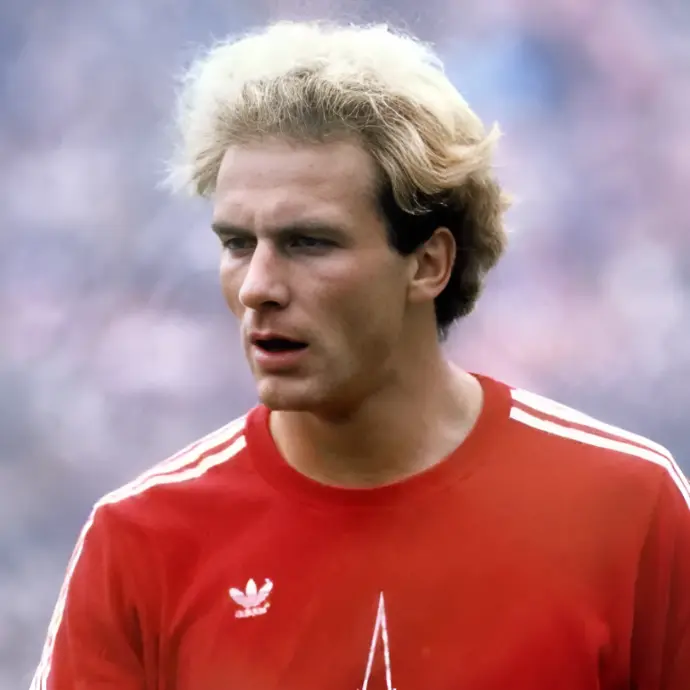
- Age : 24/25 years old
- Club : Bayern Munich
- Statistics : 56 games, 40 goals, 6 assists
- Trophies : Euro, Bundesliga
- Individual Awards : Euro TOTT, Bundesliga POTY, Bundesliga TOTY, Bundesliga Golden Shoe (26 goals)
In 1980, Karl-Heinz Rummenigge wasn’t just the best in Europe—he was the best in the world, full stop. That year, he led Bayern Munich to the Bundesliga title, finishing as the league’s top scorer with 26 goals, and doing it with a style that blended power, grace, and clinical precision. He wasn’t just scoring—he was dominating matches, dragging defenders out of position, and creating space for teammates. His movement off the ball was surgical, his finishing ruthless, and his leadership undeniable. On the international stage, he was the spearhead of West Germany’s victorious Euro 1980 campaign, where he played a pivotal role in their triumph. His performances throughout the tournament were a masterclass in intelligent forward play—always in the right place, always making the right decision. So if you say he was the best in the world that year, you’re not just making a personal call—you’re echoing the judgment of an entire footballing planet. Rummenigge in 1980 was the gold standard. A striker at his peak. A champion in every sense. And honestly? It’s hard to argue with that.